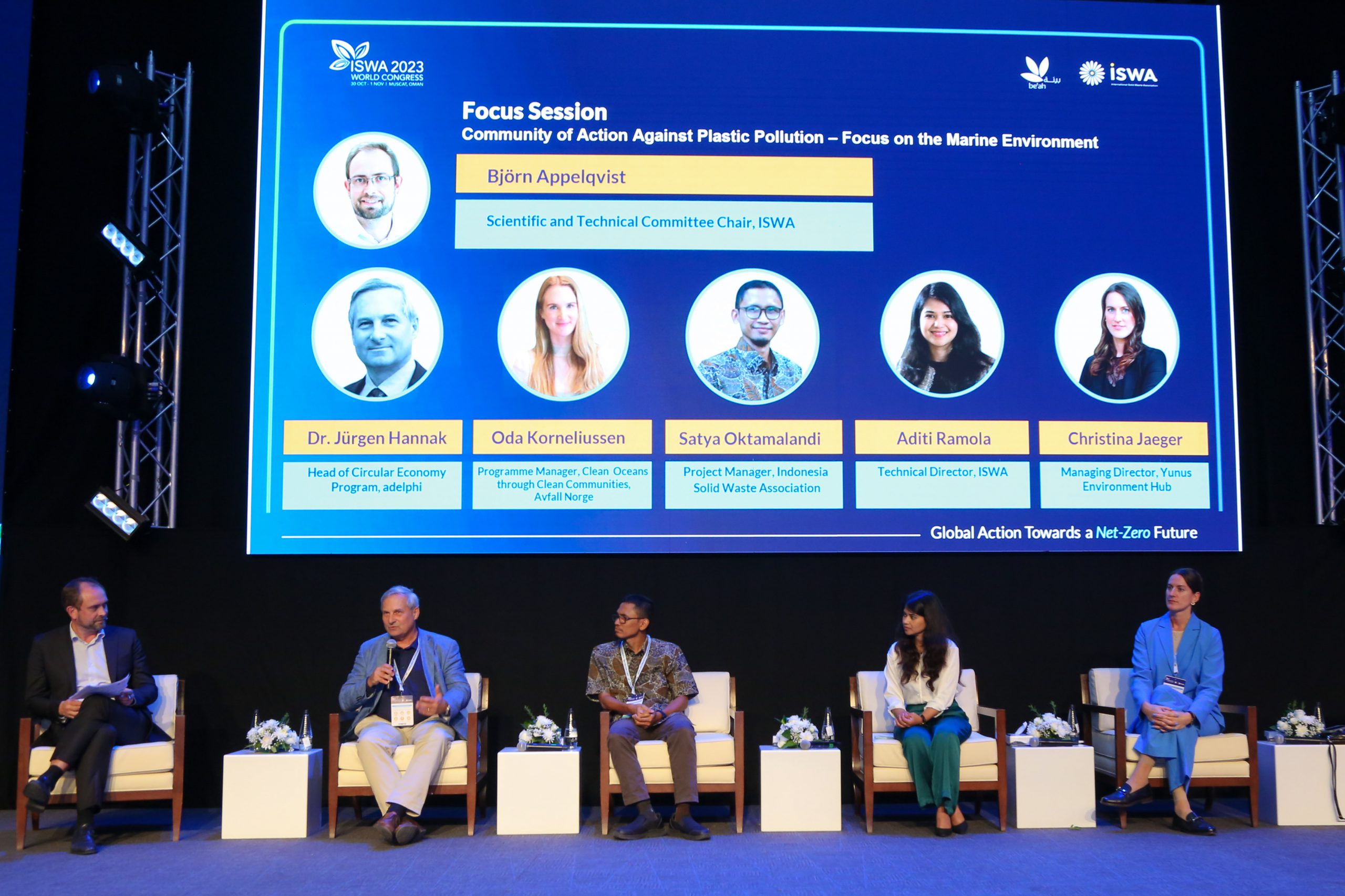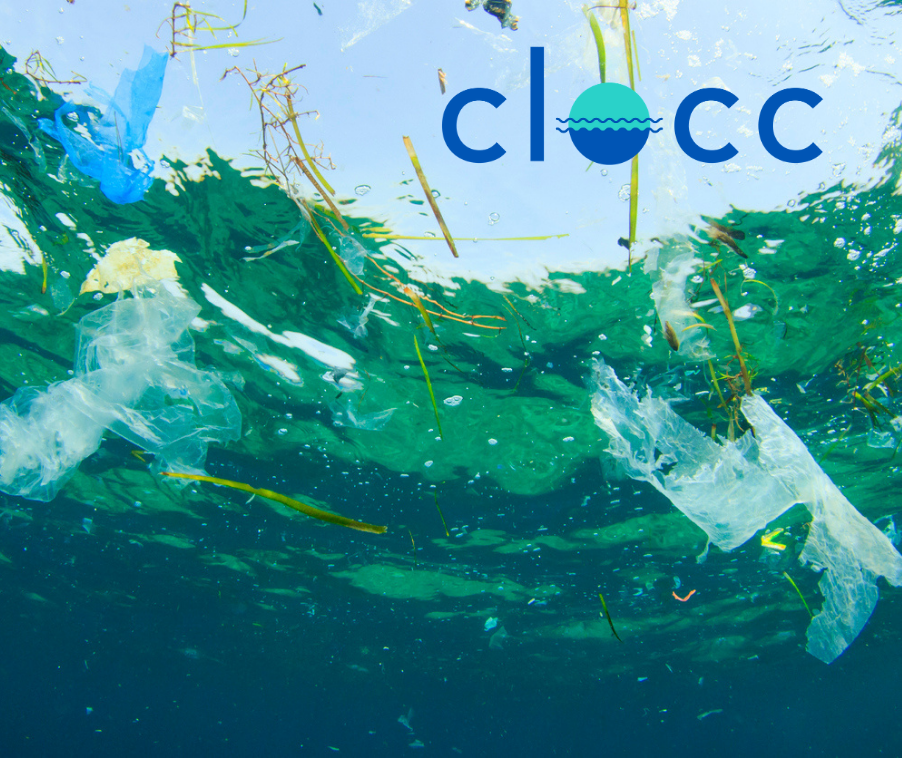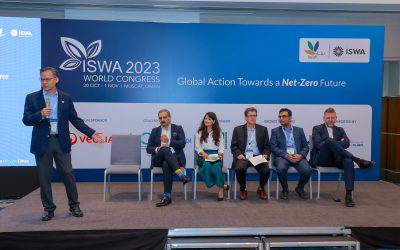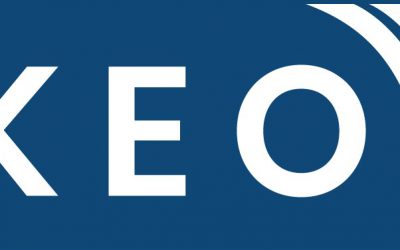The Clean Oceans through Clean Communities Programme had a very productive 2023 with projects running in parallel in Banyuwangi, East Java, Tabanan, Bali and Chengalpattu, India. All locations are at various stages of developing Waste Master Plans with Banyuwangi completing and launching it late last year.
The CLOCC Waste Management Plan in Banyuwangi, Indonesia, recently opened for public consultation, marking a significant milestone for the CLOCC program. This plan, developed in collaboration with local stakeholders and authorities, aims to address the challenge of waste pollution in Banyuwangi, where 78% of all waste is openly burned, leading to significant environmental impact. The plan encompasses various aspects of waste management, including collection, treatment, and disposal, with a focus on circular practices to minimize landfilling. The plan’s launch and implementation are crucial steps towards making Banyuwangi a clean, top-tier tourist destination by 2040.
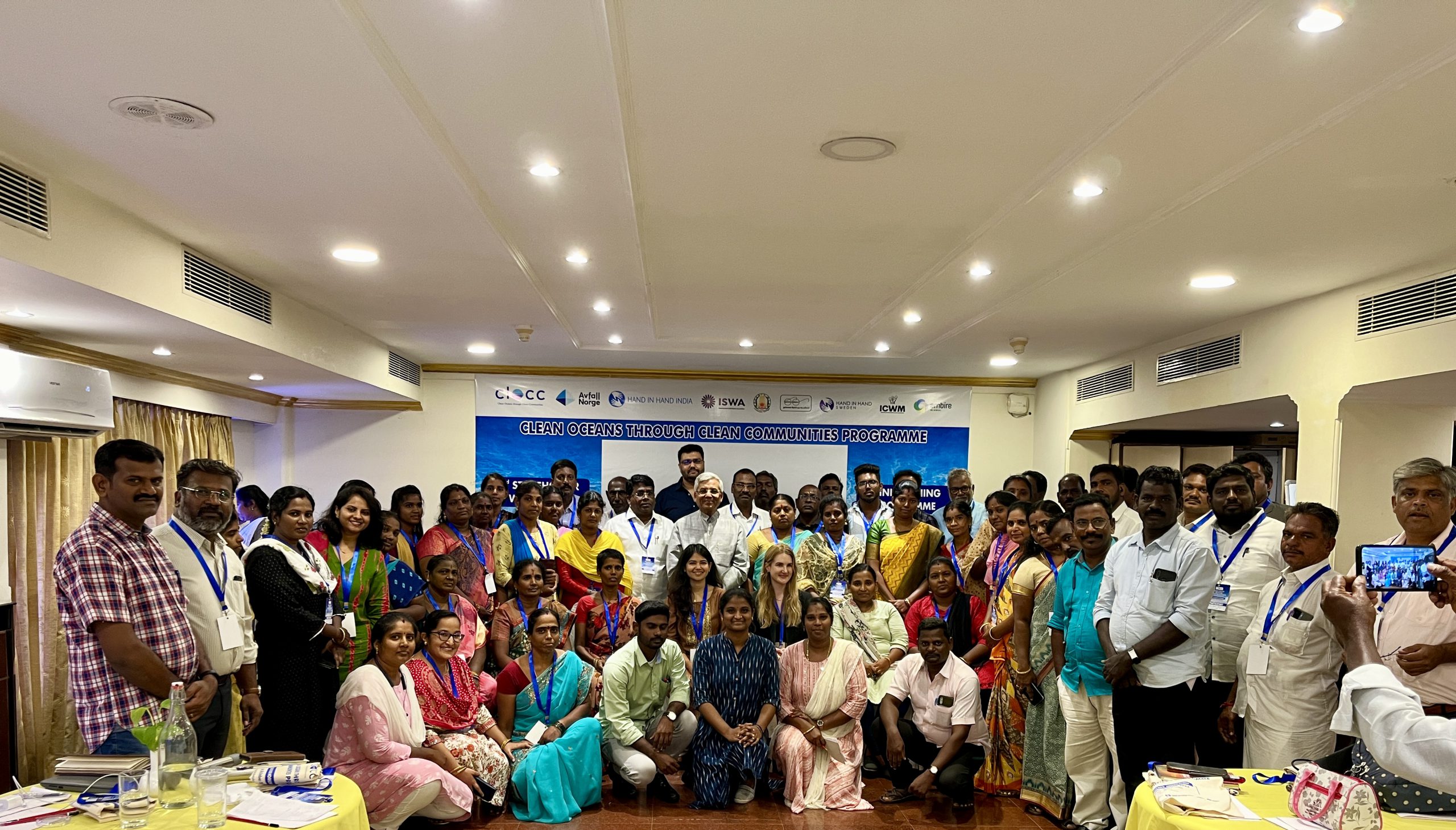
CLOCC’s initiative in Chengalpattu, India, focuses on creating a comprehensive waste management plan for 2.8 million inhabitants. The project, started in December 2022, aims to address extensive littering and inefficient waste handling in the region. Around 65% of waste is collected, but only 21% is recycled. The majority end up in poorly managed landfills. CLOCC’s efforts include a thorough data survey, collaboration with local authorities and stakeholders, and public awareness campaigns. The goal is to establish a sustainable, circular waste system focusing on reducing, reusing, and recycling, especially given the significant littering challenges in rural areas and the environmental impact on the region’s coastline. The project has completed a comprehensive baseline data collection and assessment study, followed by two stakeholder workshops.
In Tabanan, Bali, the baseline assessment study revealed that 48% of the waste generated ends up in the environment. This finding comes from CLOCC’s data collection, which is part of a larger waste management planning process. The study, conducted in collaboration with the Indonesia Solid Waste Association (InSWA), Udayana University, and local authorities, aimed to gather reliable data on waste generation and management. The results showed that of the 422 tons of waste generated daily, a significant portion is not managed properly, leading to environmental pollution. The study’s conclusions emphasize the need for better waste management planning, including supporting village governments in waste management activities and addressing challenges in the recycling sector in Bali. The CLOCC Programme is in its last phase of stakeholder consultations to develop the Waste Master Plan for Tabanan to be completed later this year.
